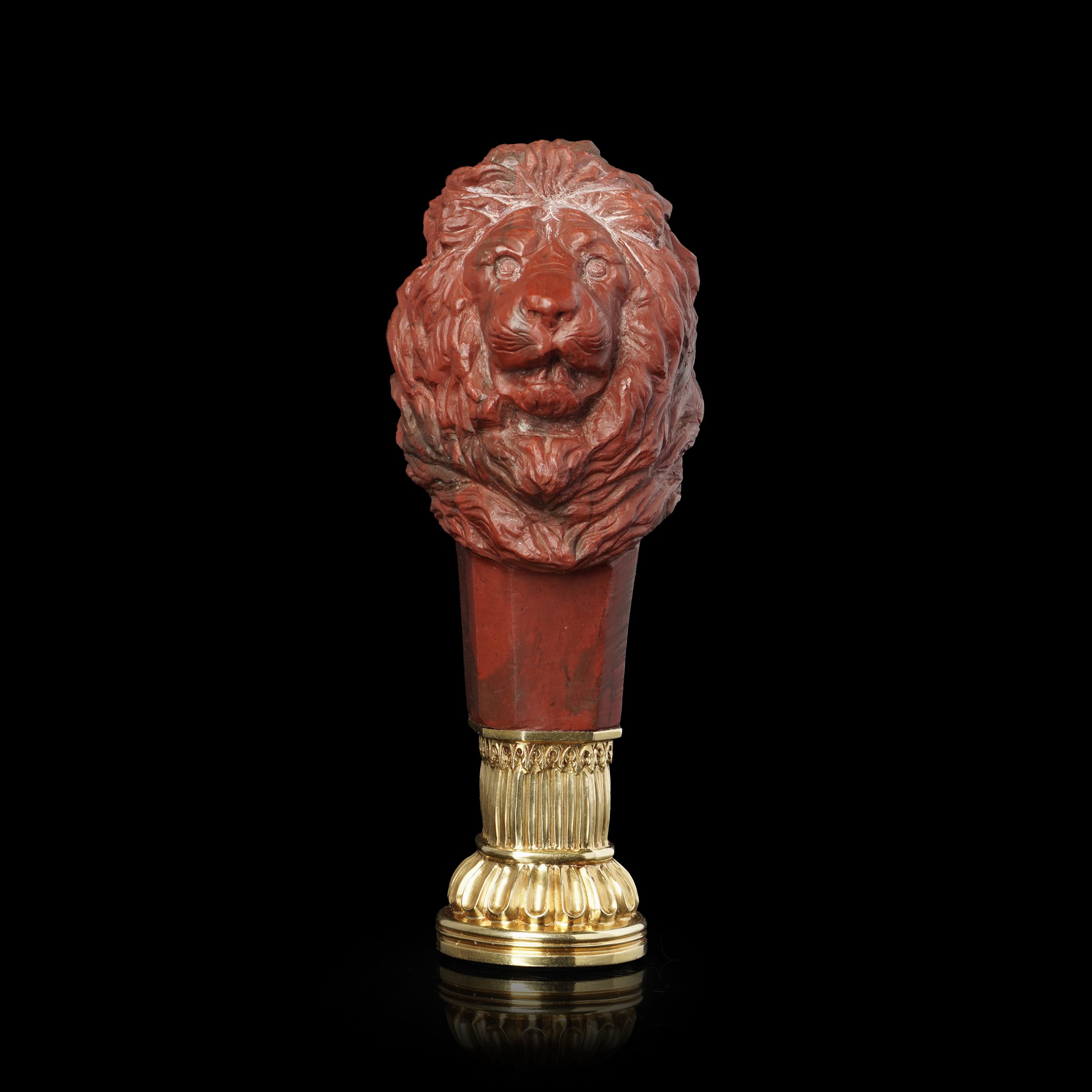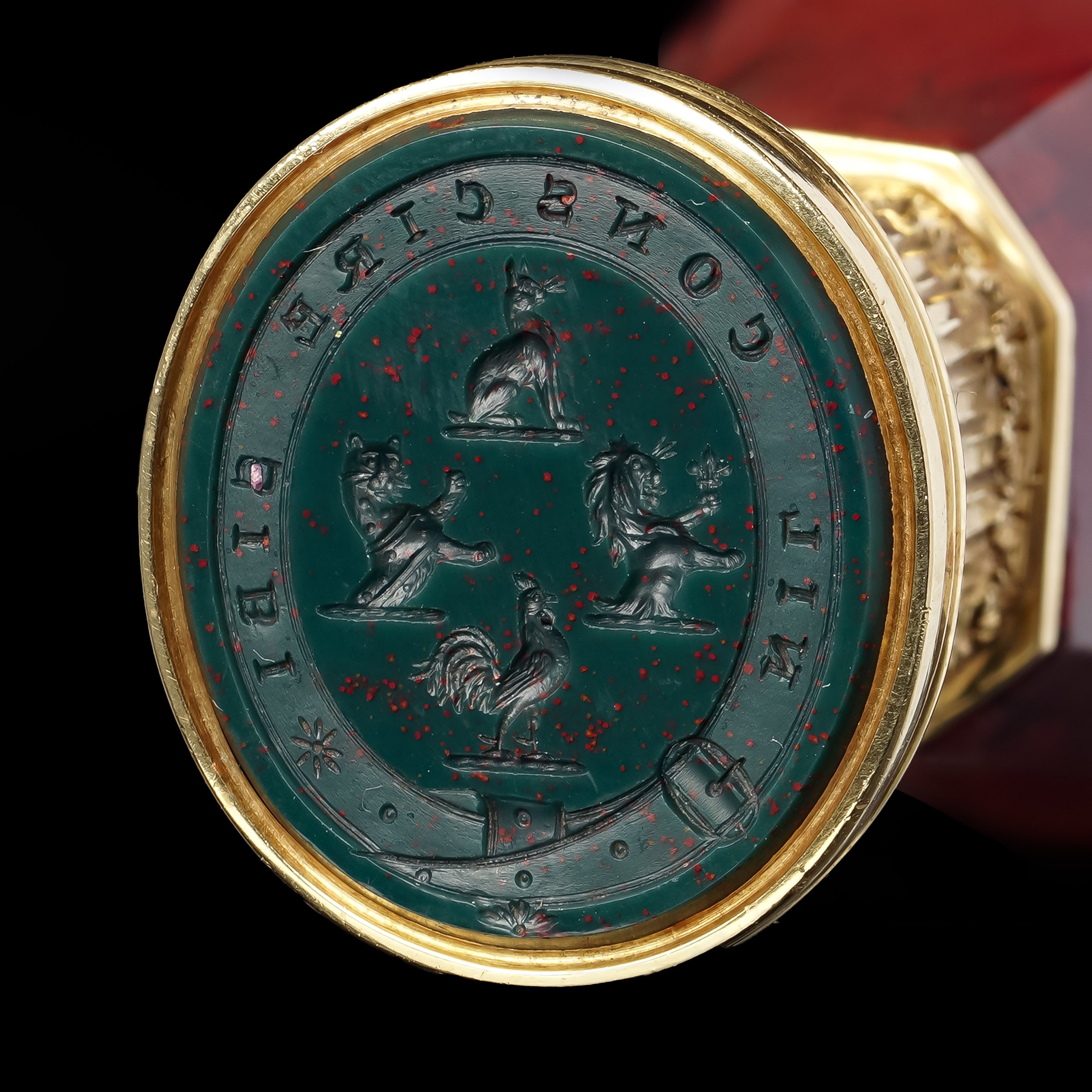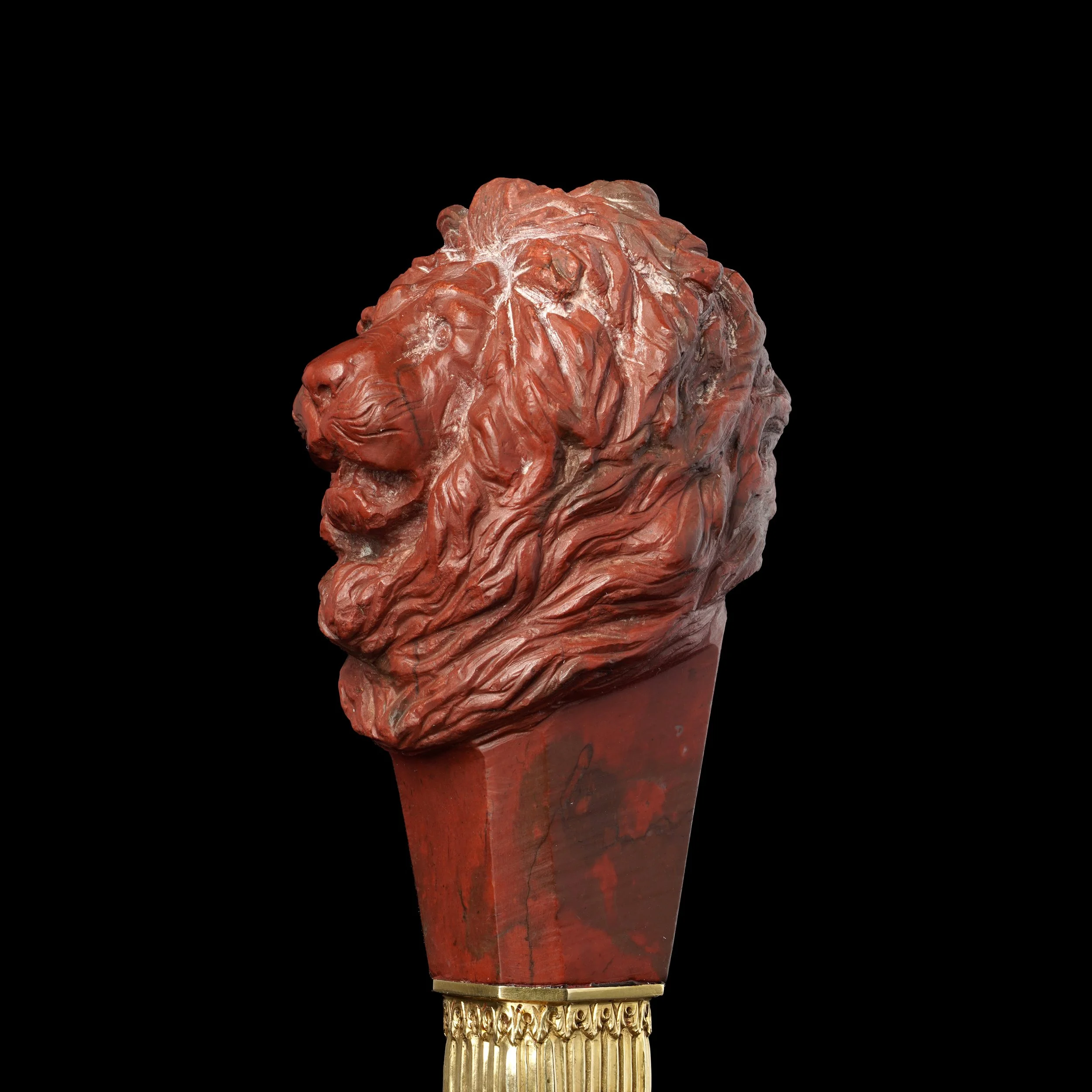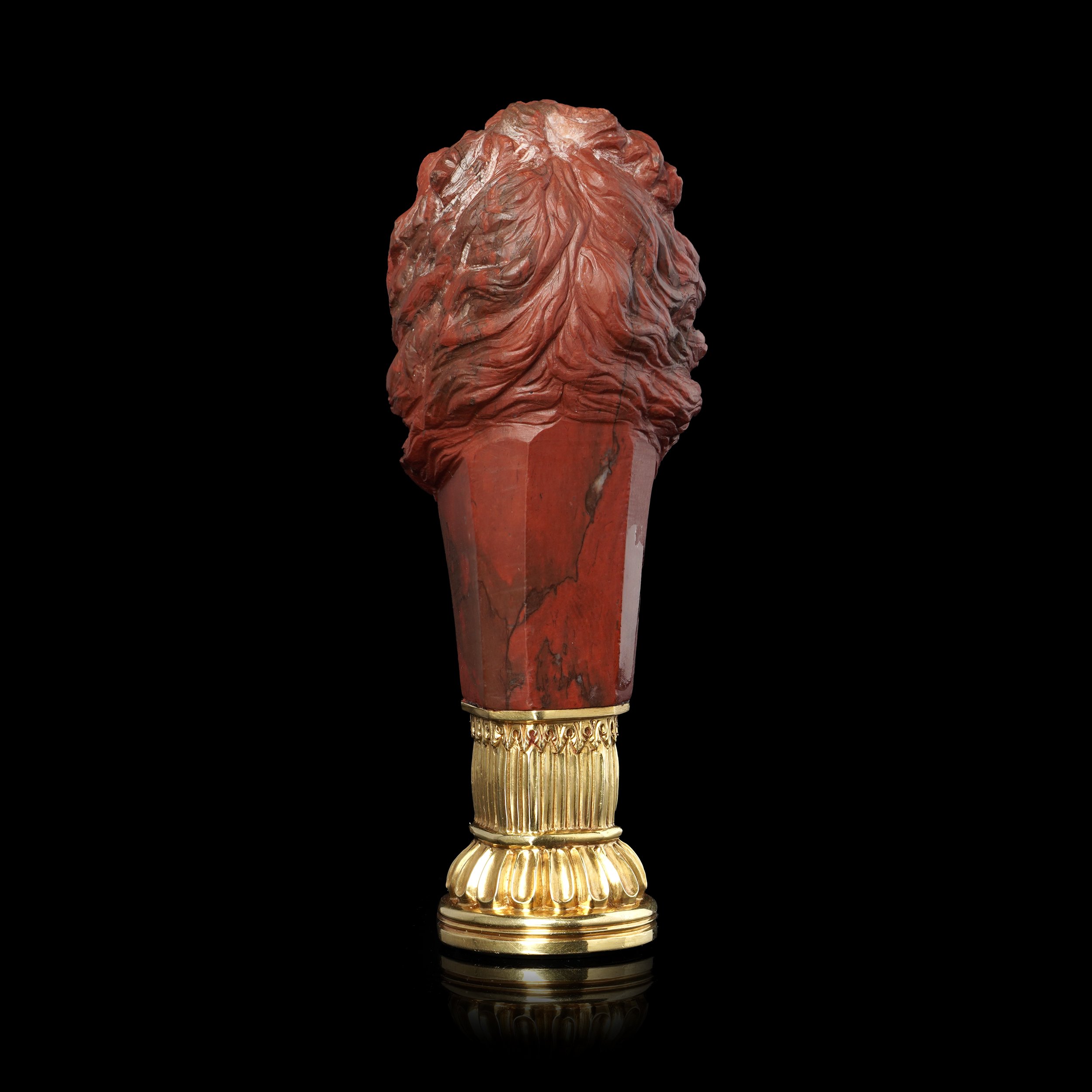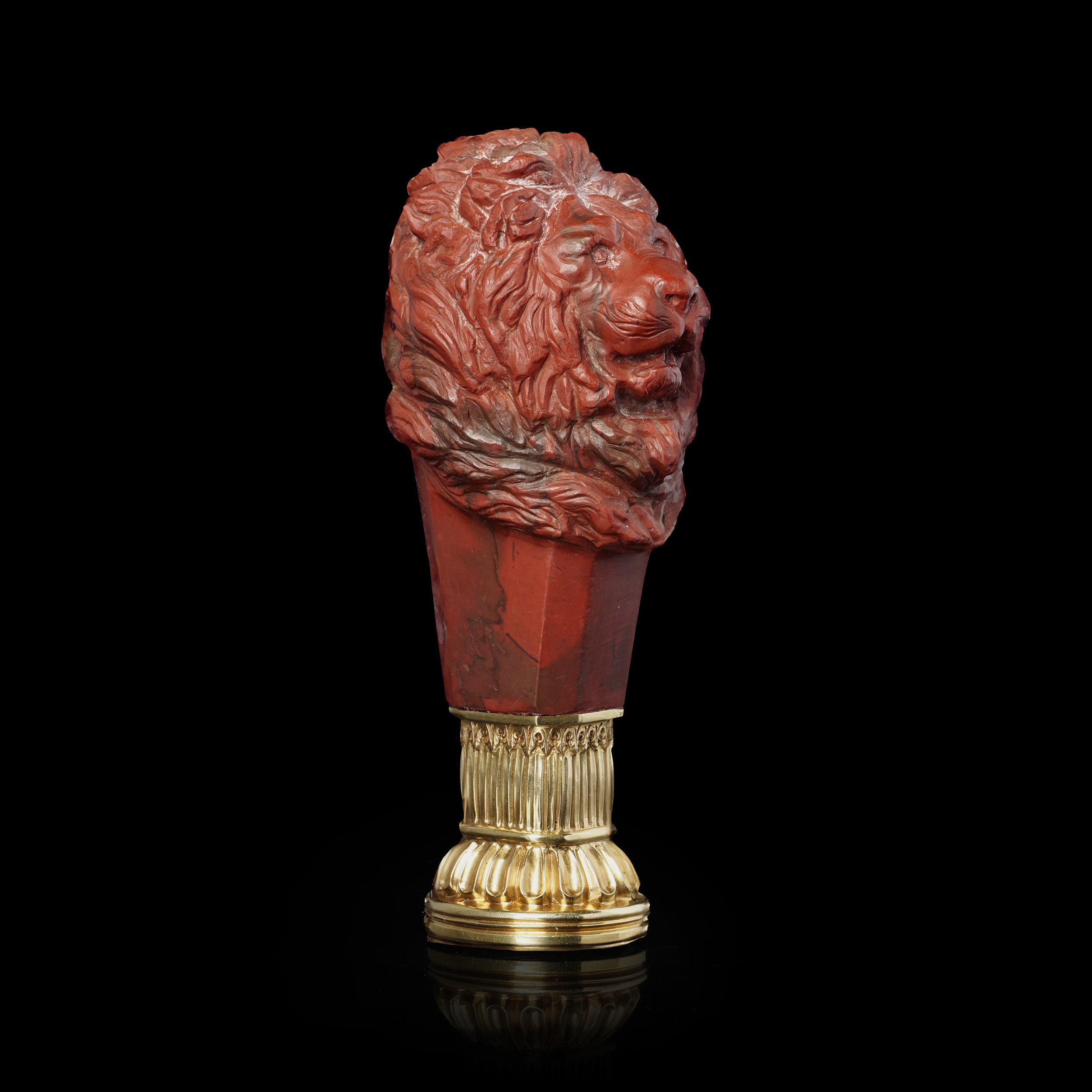-
An impressive 19th-century desk seal crafted in 18kt yellow gold with a carved agate handle in the form of a lion's head. The base features a large bloodstone matrix intaglio engraved with the heraldic crest and Latin motto of the Sibthorp family: "Nil Conscire Sibi" — meaning "To have a conscience free from guilt."
-
Dimensions:
Height: 9.3 cm
Width (seal face): 3.5 cm
Weight: 136.58 gramsCondition Report: Excellent antique condition. All details of the engraving are crisp and well-preserved. Gold shows minimal surface wear consistent with age.
-
ITEM LOCATION : United Kingdom
SHIPPING FEE: Complimentary Express & Insured Shipping
INCLUDED: Complimentary Gift Wrap Packaging & Certificate of Evaluation.
RETURNS: 14-Days Return Policy, Money-Back Guarantee. -
The Sibthorp family is one of Lincolnshire’s most intriguing aristocratic lineages, with roots tracing back to Norman England. Their name originates from the village of Sibthorpe in Nottinghamshire, recorded in the Domesday Book of 1086. Over the centuries, the Sibthorps established themselves not only as prominent landowners but also as political firebrands, intellectuals, and churchmen.
Among the most colourful figures was Colonel Charles de Laet Waldo Sibthorp (1783–1855), a Member of Parliament for Lincoln who gained notoriety for his fierce opposition to modern progress. A proud Ultra-Tory, he famously railed against everything from gas lighting and railways to the Great Exhibition of 1851. His eccentric moustaches and flamboyant rhetoric made him a regular target of Victorian satire, often caricatured in Punch magazine.
The family also contributed to academic life through John Sibthorp (1758–1796), Charles’s elder brother, who was a celebrated botanist and professor at Oxford. His groundbreaking plant expeditions across Europe laid the foundations for later botanical studies, and his work continues to be referenced today.on
